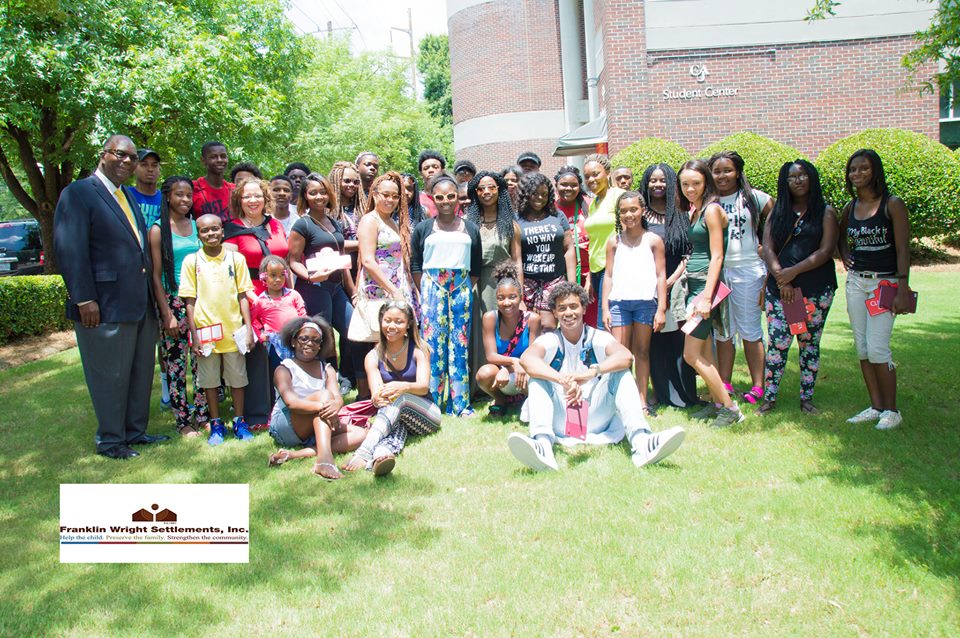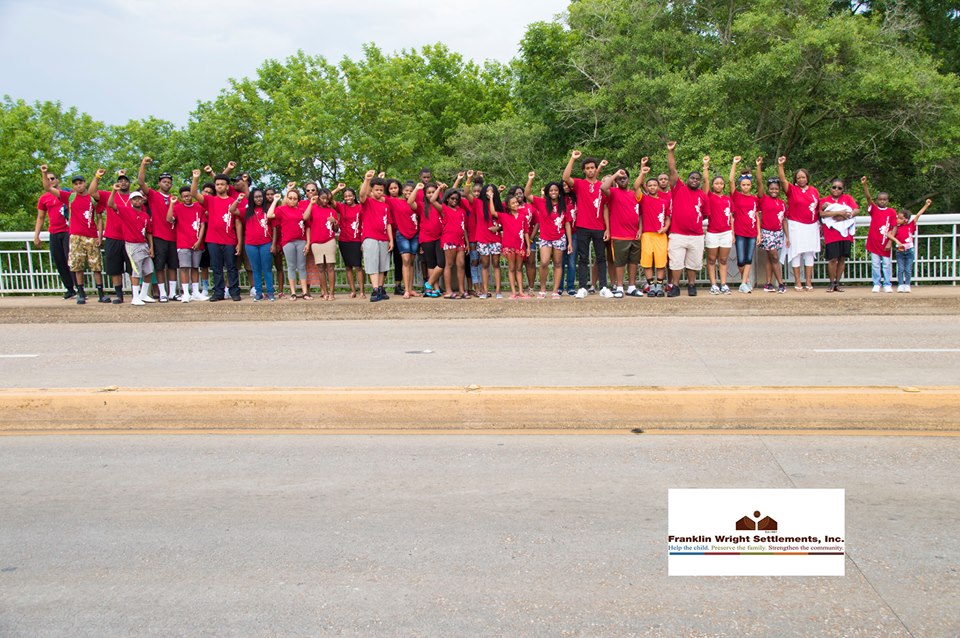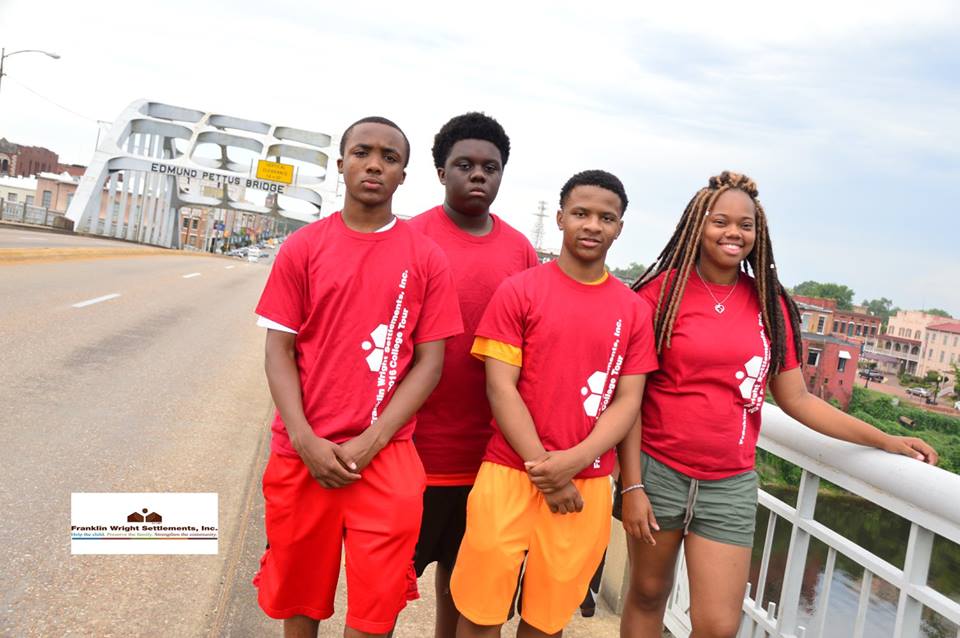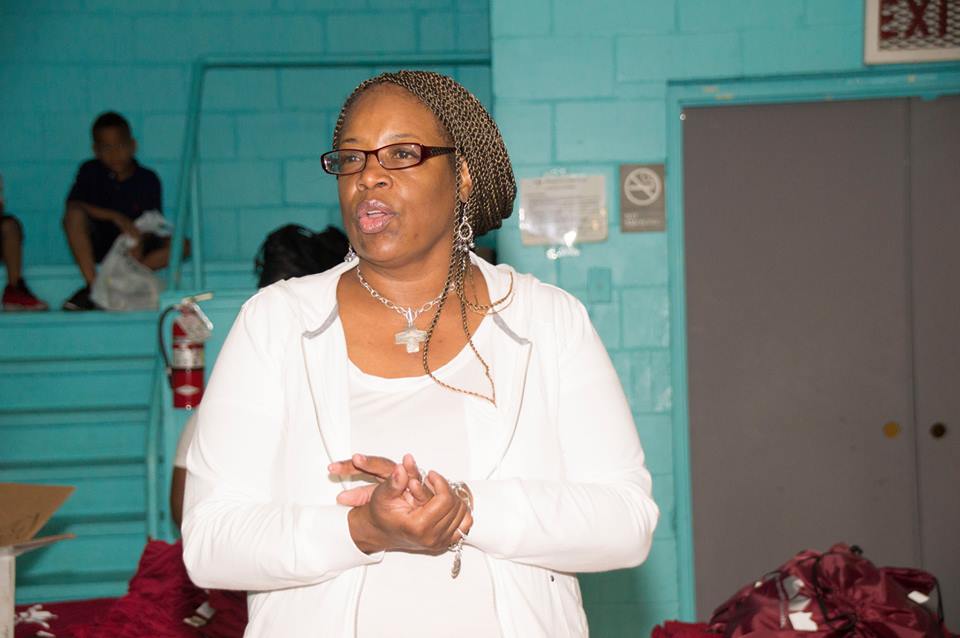
One day, Monique Marks took a mental inventory of the many casualties in the blighted and beleaguered areas of Detroit. And after joining the renowned Franklin-Wright Settlements, she made a silent proclamation to not only change the trajectory of young lives, but to alter the course of generations to come.
As the president & CEO of Franklin-Wright, she has done just that, particularly with her celebrated national college tours to HBCUs and other tech schools for young teenagers of Detroit. One-hundred percent of the young students who go through her program and college tours end up matriculating through higher education. Those young kids lives, and their future kids’ lives, will never be the same again.

Take Charles Knight, as a poignant and heart-warming example.
Raised in foster care and teased mercilessly because of his deep mahogany-hued skin, Knight never thought he was college material. But Marks’ flipped the script on what the boy thought was a physical handicap and called him her “Ebony Prince.” Emboldened and enlightened by her tutelage, Knight went through the program, went to Alabama on the college tour and then went to college himself. He soon after joined the Peace Corps where he did several tours in Africa teaching other young people about self-esteem and education – the exact themes that Marks has been preaching from her personal pulpit for the past 15 years at Franklin-Wright. Knight has never returned to Detroit to live and is now married in North Carolina.
“When I got to Franklin Wrights Settlements, I started looking around at the blighted community and asked how could I make a difference, like a real difference. And not just the everyday things like food, shelter or clothing. How can I make a difference that will make waves for generations to come?” Marks asked rhetorically.

Franklin Wright Settlements, which has been open since 1881 and is the oldest of its kind in Detroit, is in the life-changing business with Marks at the helm. Her famous college tour program was born out of her concern about the abysmal black male (and female) attendance and graduation rates from school.
“We have a couple of gyms in our facility, and noticing that a lot of the men were playing basketball every single day, but were not graduating – some of them as young as 12 years old who just fell through the cracks in the system where no one tracked that they were not going to school since they were 12 years old,” she said. And, talking to them, it’s not that their parents didn’t value education; they just didn’t stress the importance of it. Many of their parents hadn’t been educated and many of their parents didn’t finish high school which I thought which I thought was a sad statistic.” Worse, Marks mentioned, is the mortification of being 16 or 17 years old and reading at a 2nd or 3rd grade level, sometimes making them too embarrassed to continue their education.
That’s when Marks had an epiphany that would change the lives of many Detroit youth – and hers as well.
“I said I need to break the barriers. So we started having tutorials and for some, who were not in school, and they were given the basic skills. And we used basketball as the carrot – like, if you come (to Franklin Wright’s rec center), you have to enroll in some of the classes then you can play open rec and they love open rec,” she explained the embryonic stages of the program. And while the program was working, Marks was looking to do something on a grander scale, something that would spark irreversible changes the kids’ lives.
“So I said’ I have to do something bigger. These kids had not left, literally, a six-mile radius of their home. The mall is the furthest thing they were gone.”
Marks was not only taking them out of their neighborhood, she would take them on figurative and literal ride of their lives, to prestigious colleges across the country, that would cause a paradigm shift in their thinking, emotions and self-esteem.
“The first thing I did was take them to Atlanta and some of the HBCUs and I incorporated some of the other school and they loved it,” Marks testifies. “They loved being out of Detroit. They loved going to an amusement park. And I even had some of the sororities and fraternities doing step shows, which really intrigued them.”

Beginning exclusively with older teens, Marks quickly discerned she could have an even greater impact on minds and hearts the younger they were.
“I don’t exclude the older kids,” she assures. “But the younger we get them, we are able to get them to focus on their future. They have journals they write in and they write down their thoughts and emotions.”
And here’s the key:
“I need them to see themselves now and I need them to see themselves in the future. Ask most inner city youth about where they are going to be in five years, they are going to give you a blank stare,” Marks added. “They had not even thought about the future. I make them write it all down. And that’s how it started.”
As the beneficiary of generous philanthropic contributions by corporations, Marks and her team are able to take the kids on the road for seven to 10 days, where they visit places like Morehouse and Spelman colleges (their favorites), but also stop through national powerhouses like Emory University and the Georgia Institute of Technology (Georgia Tech).

The trips become educational in another way, Marks says, as the kids learn history as they ride through the Deep South. “They walked across the bridge in Selma, Ala. (the infamous Edmund Pettus Bridge, a major milestone in the enactment of the Voting Rights Act of 1965) after watching the movie and they were just … it was life changing. It was epic. They just had no idea. I said ‘what has changed?’ I tell them ‘they don’t use nooses, they use bullets. Their lives are still not valued.
 “Now, I’m not saying that an educated man cannot be shot down but your choices are greater with education.”
“Now, I’m not saying that an educated man cannot be shot down but your choices are greater with education.”
The same thing happened in the HBCUs in Alabama. “We went to Tuskegee and learned about the history of Booker T. Washington and George Washington Carver and went to their grave sites. They learned how the KKK burned down their church. They visited a few other colleges and other historically significant places. They also went to the King Center (in Atlanta) and they were fascinated by that. They could not figure out the eternal flame.”
The college tour program is but one of the many proud endeavors that Franklin Wright Settlements engages in, Marks explains, including the early childhood center, an afterschool program and elderly outreach program which is the largest in the city of Detroit, where they bring them in and pamper them and feed them and clean up their homes.

Marks vows that she will not shy away from anyone who is looking to better themselves or is lost and want to explore another route in life.
“We turn no one away,” Marks exclaimed resolutely. “We have boots to the ground. There’s not a kid I won’t take and tell them that they are somebody. And they end up going to college. And pull their pants up. That’s the first thing they do and take their doo-rag off. And learn how to open doors for ladies and say ‘please’ and ‘thank you’ and things like that.”

The changes in the kids is often so stark and dramatic that, when they return or visit their old neighborhoods, they find things have changed.
“And it’s hard for them to go back to their old ways. When they come back from college, they said people in the neighborhood be looking at us differently, ‘oh, like you’re soft now.’ I tell them that they are not soft. They just have to find an environment that fits their new reality. They are not supposed to go back.”
Another person who won’t ever go back is Sheldon Holloway, a man who fought against going to college every step of the way with.
“He’s was fighting me tooth and nail; he had some domestic issues. And he said he was never going to college. And I did take him on a college tour. And then now he said ‘how can I go to college,’” she recalls. “And now he’s in his third year at the University of Michigan and he’s a chaperone on this year’s college tour and the kids named him Mentor of the Year.”
The most remarkable aspect of this entire program for Marks might be the fact that her philosophy has always been ‘each one, reach one.’ But Marks’ students told her that, while she is on the right track with her philosophical outlook on life, she was not quite accurate.
“They (the students) tell me ‘I’m reaching more than one,’” Marks recalls in amazement.
Actually, the young students eventually reach many more than one, thanks to Marks.
Photos: by Montez Miller
Take a look at the photographic highlights from the Franklin Wright Settlements College Tour:
